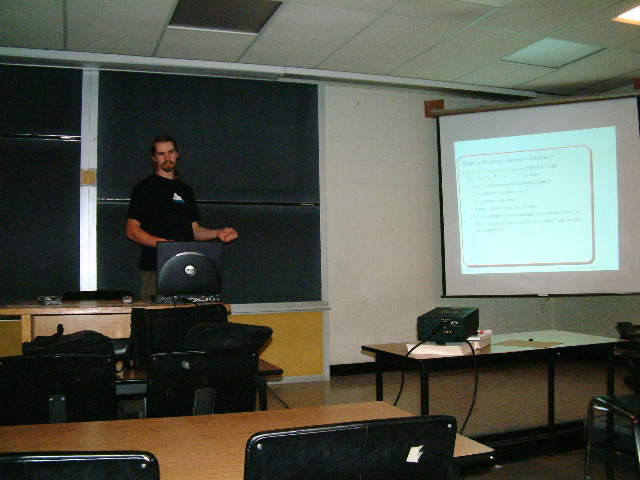
Title: Controllability and motion planning for mechanical systems (½ hour)
Abstract: Path planning for underactuated mechanical systems using the notion of kinematic controllability will be introduced and illustrated via example of a planar rigid body. The planar rigid body is modelled as a simple mechanical system. We shall define a simple mechanical system as a triple (Q,g,V) where Q is an n-dimensional configuration manifold, g is the Riemannian metric, and V the potential energy. In particular we are interested in the case when V=0 and the system is underactuated. Such systems do not yield a controllable linearisation. Thus more sophisticated methods are required to deal with the full non-linear case. One approach is to relate the system to an associated driftless system via the notion of kinematic controllability. To do so, one must first find a set of decoupling vector fields for the system. That is, vector fields whose integral curves are controlled trajectories up to arbitrary reparameterisation. This has a clear advantage for path planning; one can pick a reparameterisation such that the end points of the integral curves have zero velocity. Then the path planning algorithms amount to piecing the end points of these curves together to obtain the desired final configuration.